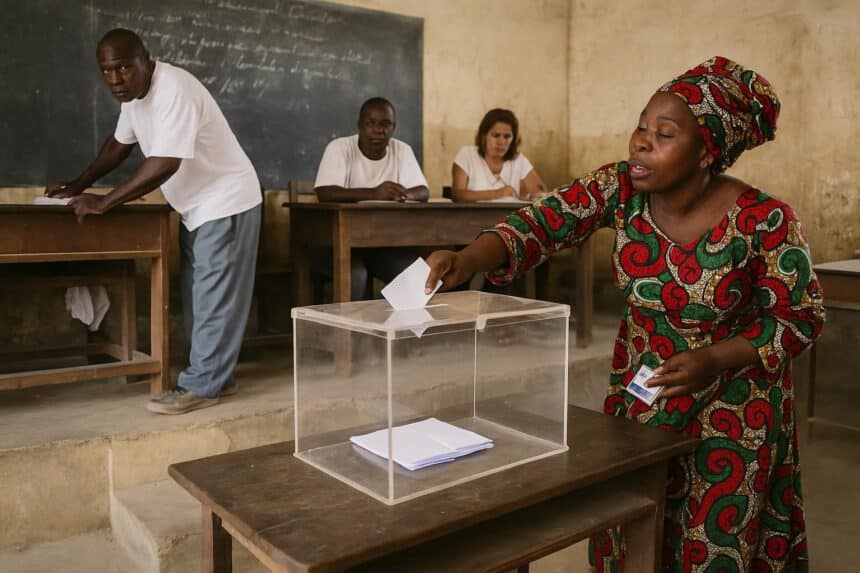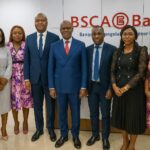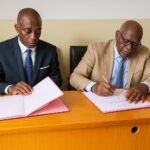Electoral Calendar and Constitutional Framework
The Republic of the Congo is scheduled to hold its presidential poll in March 2026, in accordance with Article 67 of the 2015 Constitution, which caps incumbency at three consecutive five-year terms, thereby allowing President Denis Sassou Nguesso to seek renewal.
The National Independent Electoral Commission, CENI, has already released an indicative timetable, outlining candidate registrations for December 2025 and a two-week campaign period, measures welcomed by ruling and opposition parties alike for their clarity.
Several diplomatic missions in Brazzaville, including those of the European Union and the United Nations, have expressed early interest in deploying technical assistance teams, citing the importance of consolidating democratic gains recorded since the relatively peaceful ballot of 2021 (UN Electoral Division, 2023).
The Incumbent’s Strategic Assets
President Sassou Nguesso enters the race with broad name recognition, an extensive provincial network and the advantage of incumbency, factors that traditionally translate into mobilization efficiency according to studies by Afrobarometer and the Institute for Security Studies.
Over the past term his government prioritized energy diversification, commissioning the Liouesso hydroelectric plant and advancing rural electrification, achievements highlighted in the 2024 national budget report and frequently cited by the majority as tangible evidence of developmental stewardship.
Yet presidential advisers acknowledge that inflationary pressure and youth unemployment persist, prompting the executive to unveil an emergency vocational training fund in June 2024, a move the Prime Minister described as “a social stabilizer” during a press briefing.
Fragmented Opposition Landscape
Nine parties have signalled intent to field flag bearers, ranging from the Pan-African Union for Social Democracy to the newly formed Movement for Ethical Governance, according to statements collected by Radio Congo.
The absence of a single rallying personality has renewed debate over opposition primaries, yet logistical hurdles and diverging regional bases make consensus elusive, political scientist Armand Makaya told Les Dépêches de Brazzaville earlier this year.
Several civil-society coalitions have urged a “credible dialogue” on voter rolls and campaign finance, but senior majority figures argue that existing institutional channels, including the Constitutional Court, already provide adequate safeguards against malpractice (Government Spokesperson Briefing, May 2024).
Historical Memory and Public Sentiment
Memories of the crises of the 1990s linger, shaping risk perception among older voters who equate political transition with instability, a narrative regularly referenced by community elders during public forums in Pointe-Noire and Dolisie.
Recent Afrobarometer data, however, indicate that citizens aged eighteen to thirty list job creation and cost of living above concerns over institutional continuity, suggesting a generational divide that both camps will attempt to navigate in their messaging strategies.
Faith-based organisations, including the Episcopal Conference, have pledged to run awareness drives stressing peaceful participation, mindful that voter turnout dropped from 68 percent in 2016 to 57 percent in 2021, according to CENI certified figures.
International Observers and Regional Dynamics
Central African neighbours will watch Brazzaville closely, analysts say, because supply-chain corridors linking the Congo River to the Atlantic underpin regional trade; any uncertainty could reverberate through Gabon and the Central African Republic (Economic Community of Central African States Report, 2024).
International partners led by the African Union have already dispatched a pre-assessment mission that praised early logistical planning while recommending additional training for polling station officers to ensure the timely transmission of results, a recurrent challenge in past cycles.
Paris and Beijing, both major investors in Congo-Brazzaville’s hydrocarbons and infrastructure sectors, issued communiqués underscoring their respect for Congolese sovereignty and their expectation that the electoral process will preserve macroeconomic stability.
Technology, Youth Vote and Urban Opinion
The 2026 campaign will unfold in an environment saturated by smartphones; the Ministry of Posts and Telecommunications estimates mobile penetration at eighty-nine percent, a leap that potentially amplifies both voter education and misinformation.
Opposition activists have launched encrypted messaging channels to monitor polling stations in real time, while the ruling Congolese Labour Party plans to deploy an official application that aggregates social-service updates with campaign content, according to party officials.
Cybersecurity experts at the University of Marien-Ngouabi warn that digital literacy gaps remain, particularly in remote districts, and urge the government to extend awareness workshops to forestall the spread of fabricated results on election night.
Scenarios and Diplomatic Watchpoints
Scenario planning exercises by several embassies envisage three broad outcomes: a first-round victory for the incumbent, a run-off that compels coalition building, or a contested count; each carries implications for investment flows and security cooperation.
Should a run-off occur, attention would pivot to urban centres where younger voters predominate and turnout historically lags, making targeted civic-education drives a diplomatic priority for partners committed to inclusive governance, European diplomats say.
For now, Brazzaville remains calm, and political actors publicly reiterate their attachment to constitutional order, a tone that seasoned observers interpret as a promising signal for a contest that could further entrench democratic routines in Central Africa.






















